Reporting from Ceará, Brazil
Only health reasons have kept Brazilian President from visiting China within the first 100 days of his third government. On March 24, during the routine medical check-up before leaving for an international commitment, the Brazilian president’s cold was diagnosed as actually aggravated pneumonia due to influenza A flu. Having overcome the respiratory viral picture, Lula left for his third official visit to China, with an even larger entourage than initially planned.
Official delegation
The presidential entourage, which exceeded 70 members, was made up of parliamentarians (from the government coalition and from the opposition), allied governors of the northeastern states of Maranhão, Ceará and Rio Grande do Norte, as well as ministers, deputy ministers, directors and advisers. In addition, Lula was accompanied from April 12 to 15 by businessmen from various branches (production, food, infrastructure…), leaders of social movements and Brazilian union representatives. All of the above confirms that Lula continues to bet on unifying the country and that he is determined to put it into operation, because, as he said on January 1, when he assumed the presidency: “There cannot be two Brazils.”
The extensive entourage also responds to criticism from some media that his international trips are for “tourism”. On the contrary, Lula tries to place the Brazilian economic and industrial (and also tourist) potential as a showcase to the world. In short, wherever Lula goes, there he takes the interests and the image of the Brazil that he dreams of and wants to rebuild.
Joint declaration
During the visit, Brazil and China made a joint declaration. For the full text in Portuguese and English, see here.
Strategic partner and reindustrialization strategy
Speaking of economy, the numbers don’t lie: China has been Brazil’s main trading partner since 2009. Brazil’s trade with China is bigger than with the United States and Europe. In 2022, China imported Brazilian goods worth more than 89.7 billion dollars, especially soybeans and minerals, and exported almost 60.7 billion dollars to Brazil. The trade volume, 150.4 billion dollars, has multiplied by 21 since Lula’s first visit to the country, in 2004.
Regarding this, Lula recalled: “When I visited Beijing for the first time, few analysts envisioned that the Sino-Brazilian association would become as relevant as it is today. Since then, our trade has grown 16 times, and China has become Brazil’s main trading partner. Beyond economic relations, our relationship has been strengthened politically, as we strengthen our coordination in instances such as the BRICS,” said the Brazilian president.
Showing his admiration for the “Chinese modernization” process, and comparing it with the initiatives to promote the Brazilian reindustrialization process, Lula stated “there is no single recipe for development.” He added “the success of the Chinese path for Modernization shows that good solutions can be found anywhere, and that each country must follow its own path, according to its historical challenges and its potential.”
Likewise, he clarified that “Brazil is committed to creating the Brazilian path towards modernization, which manages to combine economic growth, reduction of poverty and social inequalities, sustainability of our extraordinary natural resources and elimination of racism and racial discrimination. We want to grow with social justice, environmental sustainability and respect for democracy and human rights,” Lula pointed out.
Signed agreements
Although the formal reception that Xi Jinping gave his Brazilian counterpart was too pompous, haughty and/or showy, for the Planalto Palace, “President Lula’s visit to China, more than a State courtesy, was an opportunity to expand cooperation between both countries”. The signing of 20 bilateral agreements proves this. The Brazilian government highlighted those instruments that aim to “de-bureaucratize” relations with China, the idea is clear: to pave the way to continue increasing and strengthening the strategic association with the Asian giant.
For Brazil, for example, it was important to facilitate and secure the export of meat to China. During the month of February, the export of meat was suspended due to an atypical and isolated case of mad cow, and China is the largest buyer of beef from the South American country. Hence, the signing of the agreement between the Ministry of Agriculture and Livestock of Brazil and the General Administration of Customs of China was especially celebrated. The instrument provides for the modification of “the information systems for the introduction of a platform for digital health certificates, to streamline the process, in addition to the preparation of a specific certification for products of animal origin.”
Communications was another area that the governments of Brazil and China have focused on. On that field, four agreements were signed between the Ministry of Communications and the National Telecommunications Agency of Brazil and the Ministry of Industry and Information Technology of China. A memorandum on television co-production was also signed between the two governments, one between a Chinese media group and the Secretariat for Institutional Relations of the Presidency and another on cooperation between the Chinese news agency Xinhua and the Brazil Communication Company (EBC).
An issue that has been a priority for both governments has to do with reducing socio-economic inequalities and guaranteeing food security for their populations. Based on these goals, the Ministry of Development and Social Assistance, Family and Fight against Hunger, the Ministry of Agrarian Development and Family Farming of Brazil and the Ministry of Agriculture and Rural Affairs of China, signed a memorandum of understanding to lay the foundations for cooperation that contributes to social and rural development, as well as the fight against hunger and poverty.
War in Ukraine: Lavrov arrived in Brazil
During Lula’s visit to the United States, the Brazilian president established an official position on the war between Ukraine and Russia: On the one hand, he considered that Russia had invaded Ukrainian territory, and, on the other, he questioned the shipment of arms and soldiers to Ukraine. Lula called for the creation of a negotiating group made up of “neutral” countries. Now, during his visit to China, together with his counterpart, Lula affirmed that “dialogue and negotiation are the only viable way out of the crisis in Ukraine and that all efforts leading to a peaceful solution to the crisis must be encouraged and supported.”
In the Joint Declaration, Brazil and China mutually welcomed the proposals from both countries seeking a peaceful solution to the crisis, while calling for more countries to play a constructive role in promoting a political solution to the crisis in Ukraine.
On the other hand, Russian Foreign Minister Sergey Lavrov, who arrived in the South American giant on April 17 to meet with his counterpart, Mauro Viera, thanked Brazil for contributing to the search for possible ways to end the war in Ukraine. “We need to resolve the conflict in a lasting way, not immediately,” he said. The Russian foreign minister also assured that the visions of Brazil and Russia on international events are similar: “We are witnessing a new world order that is fairer, more correct, based on law, and this gives us a vision of a multipolar world,” said Lavrov at a press conference held at the Itamaraty Palace.
BRICS: multipolar axis and alternative to the US dollar
Lula’s visit to China was propitious to participate in the assumption of Dilma Rousseff as president of the New Development Bank (NDB) of the BRICS, a position that she will initially maintain until June 2025. Regarding the financing entity, Lula maintained that the NDB “has great transformative potential, to the extent that it frees emerging countries from submission to traditional financial institutions (such as the World Bank and the IMF) that claim to govern us (countries), without having a mandate to do so.”
Lula also spoke about the possibility that the financing of the NDB could be given independently of the US dollar, an initiative that would help emerging countries not to be suffocated by developed nations: “Why can’t we maintain trade relations in our own currency? Who was it that decided that it should be through the dollar?”, he wondered rhetorically. “We need to have a currency that leads countries to a slightly calmer situation, because today a country has to run after the dollar to export,” said the Brazilian president.
In this same sense, Lula highlighted the importance of maintaining the identity and coherence of the group made up of Brazil, Russia, India, China and South Africa. He emphasized that – through the Brics – one must “support multilateralism, promote a more significant role for developing countries in the international system and work for reforms in global institutions, to make them more democratic and representative, including in the UN Security Council”.
Dilma Rousseff’s inauguration ceremony as president of the BRICS Bank was held in Shanghai, and Lula took advantage of his visit to this city to visit the Huawei Research and Development Center.
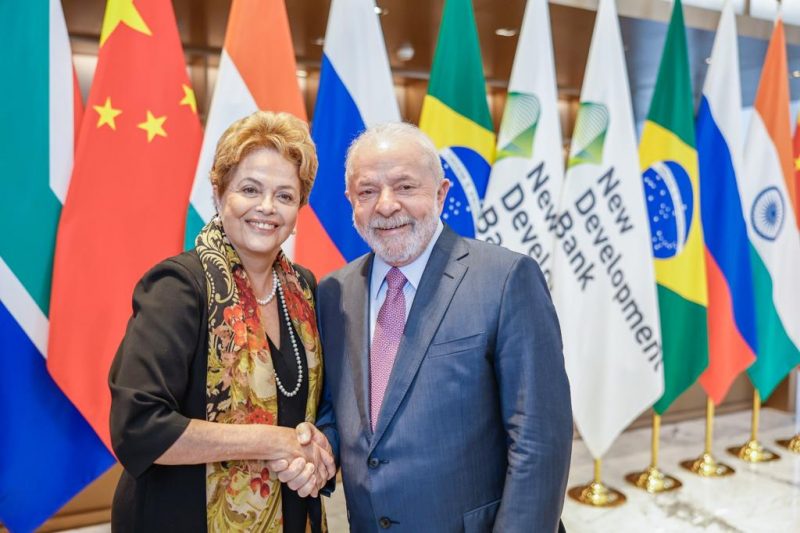
Final thoughts
If anything, Lula’s visit to Xi Jinping alone could not have been enough to answer -in the inevitable comparison with the previous visit to the United States – which of the two would have been more important and more strategic: Criticism of the hegemony of the US dollar in global trade, support for financing “third world” countries through the New Development Bank, the call for cooperation, solidarity and multipolarity hand in hand with the BRICS, and the intention to establish links with Huawei in the framework of the still “technological war” between the United States and China, already make it clear: Not Lula’s pragmatism, but the role he favors and is determined to represent.
In short, the return to the world of a Brazil led by Lula, had to necessarily go through China. And, if the New Silk Road is not yet a reality, it will soon be, if Lula continues in the direction he is going, that is, it is a matter of (a short) time. As indeed is the end of US hegemony.







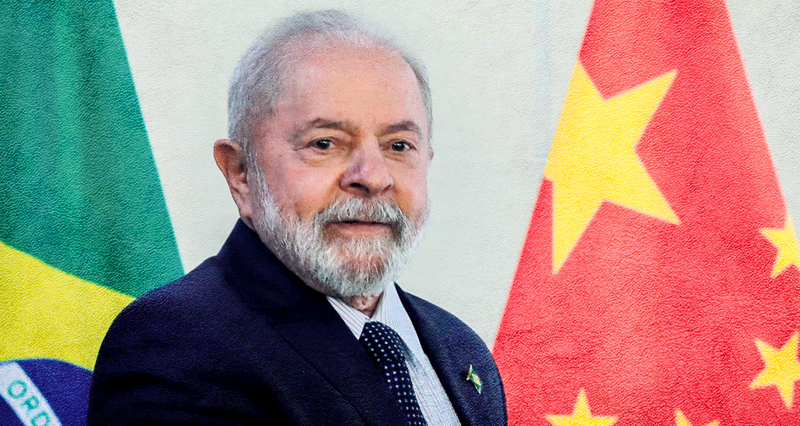

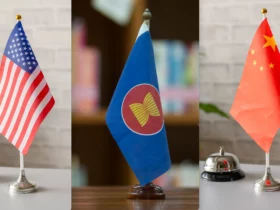
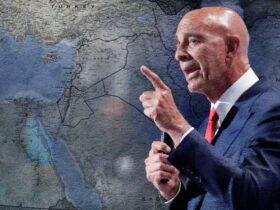
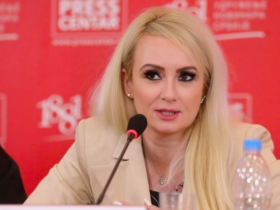
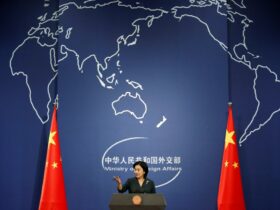




Leave a Reply